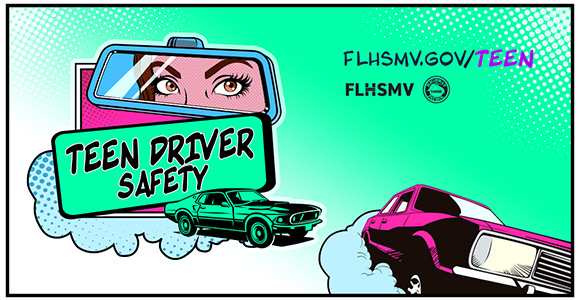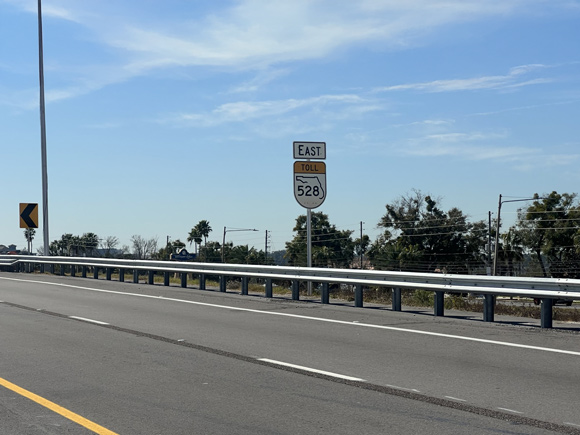It’s up to every driver to act responsibly behind the wheel of a vehicle. Younger drivers need our help, as they are not as experienced on our roadways, have yet to fully develop their good driving habits, and are more prone to risky behaviors that could potentially put themselves and others in harm’s way. That’s why the Florida Department of Transportation (FDOT) joins the Florida Department of Highway Safety and Motor Vehicles (FLHSMV) in recognizing October 19-25 as National Teen Driver Safety Week.
There are many ways to help our teen drivers and those they share the road with to stay safe. Experience matters, so parents should spend time in the car with their teen drivers to monitor their focus and help them develop safe driving habits.
Here are some key points to discuss with your teen driver so they can be safe on the road — not only during Teen Driver Safety Week, but year-round:
- Buckle up — 53% of teen drivers killed in crashes in 2023 were unbuckled. Florida law requires all drivers, front seat passengers, and passengers under the age of 18 to wear seat belts. A good practice is to teach young drivers to buckle up before they start the car and ensure their passengers do likewise.
- Limit passengers to limit distractions — More passengers can mean more distractions. For new drivers, limiting the number of passengers helps them focus on the road.
- Plan ahead — Make sure your teen knows to visually check their tires before driving. Before they put the car in gear, they should also know how much fuel is in the tank so they don’t get stranded in an unfamiliar or unsafe location.
- Stay focused — Teach your teens about the risks of distracted driving. Distractions, such as eating or adjusting climate controls while the vehicle is in motion, can significantly reduce a driver’s ability to react to other vehicles, pedestrians, cyclists, children, hazards, or inclement weather conditions. Phones should be on Do Not Disturb before driving to eliminate the urge to check texts. Loud music can prevent drivers from hearing emergency vehicle sirens, shouts from pedestrians or cyclists, or car horns from other motorists.
- Be accountable — Empower your teen(s) to pay attention while riding as a passenger with others and to speak up if the driver is speeding, distracted, or engaging in other unsafe behavior. It could mean the difference between getting somewhere safely and being caught up in a potentially dangerous situation.
Teen driver safety is not a one-time conversation or something that is limited to Teen Driver Safety Week. It is an ongoing effort that will make a difference in a teen driver’s life.



 ATTENTION DRIVERS: Overnight Closures of the Westbound I-4 Exit Ramp to Eastbound S.R. 528 February 23-26
ATTENTION DRIVERS: Overnight Closures of the Westbound I-4 Exit Ramp to Eastbound S.R. 528 February 23-26 Overnight Turkey Lake Road Paving Operation January 14 – Late February
Overnight Turkey Lake Road Paving Operation January 14 – Late February New Year, New Pavement: Crews Prepare Roads for New Sand Lake Loop Ramp
New Year, New Pavement: Crews Prepare Roads for New Sand Lake Loop Ramp Driving in Fog: Low Visibility, High Responsibility
Driving in Fog: Low Visibility, High Responsibility